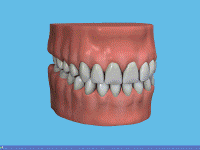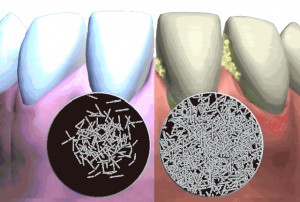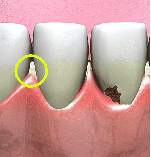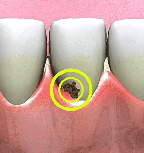 FAQs about Dry Mouth
FAQs about Dry Mouth
What is dry mouth?
An extremely common symptom presented by patients. It is a condition that may have long or short-term effects on you. Having a dry mouth can cause many health and oral health problems.
What causes dry mouth?
 It is caused by the salivary glands in your mouth not working in the way they should normally. Dry mouth may be a symptom of stress or medication and can therefore be short-term. Smoking can also cause dry mouth. In the long-term a dry mouth may be irreversible caused by medical treatments such as radiotherapy or by a medical condition such as diabetes or rheumatoid arthritis.
It is caused by the salivary glands in your mouth not working in the way they should normally. Dry mouth may be a symptom of stress or medication and can therefore be short-term. Smoking can also cause dry mouth. In the long-term a dry mouth may be irreversible caused by medical treatments such as radiotherapy or by a medical condition such as diabetes or rheumatoid arthritis.
How will dry mouth affect me?
 Dry mouth can have a dramatic effect upon a patient. You will experience difficulty in every day functions such as talking, eating, swallowing and sleeping. If you are a denture wearer you may find it uncomfortable, and find that it does not fit very well. You will probably feel thirsty most of the time and dry mouth will affect your sense of taste. You may also feel a burning sensation in your mouth and develop cracked lips.
Dry mouth can have a dramatic effect upon a patient. You will experience difficulty in every day functions such as talking, eating, swallowing and sleeping. If you are a denture wearer you may find it uncomfortable, and find that it does not fit very well. You will probably feel thirsty most of the time and dry mouth will affect your sense of taste. You may also feel a burning sensation in your mouth and develop cracked lips.
Natural saliva production is essential to your oral health as it washes away debris and plaque which cause tooth decay and your gums may be swollen, sore and sometimes they may bleed. Dry mouth frequently causes bad breath in sufferers.
What can I do?
Any of the above symptoms can be relieved. Talk to your dentist about your symptoms and what can be used to make you more comfortable.
What can be done to help?
 If your dry mouth symptoms have an identifiable cause, such as medication, it may be possible to rectify the problem – for these types of reason your symptoms may be short-term. Temporarily, sucking sugar-free sweets or an ice cube can relieve dry mouth. It is important to introduce a method of sustained moisture. This can be done with moisture gels or saliva substitutes.
If your dry mouth symptoms have an identifiable cause, such as medication, it may be possible to rectify the problem – for these types of reason your symptoms may be short-term. Temporarily, sucking sugar-free sweets or an ice cube can relieve dry mouth. It is important to introduce a method of sustained moisture. This can be done with moisture gels or saliva substitutes.
How can look after my mouth?
For dry mouth sufferers it is very important to maintain a healthy mouth. Specialist products are available to make your oral hygiene more comfortable. These products will not only relieve the dry mouth feeling but supplement the protective elements in the saliva by releasing enzymes. These specialist products are available as a gum, mouthwash, toothpaste, moisturising gel, gel mouthspray and sucking tablet. Used daily they will help keep the dry mouth moist, comfortable and healthy.
How does this fit into my oral hygiene routine?
 Brush at least twice a day using a fluoride toothpaste. Clean between the teeth with floss or an interdental brush, since your mouth will be at higher risk of disease.
Brush at least twice a day using a fluoride toothpaste. Clean between the teeth with floss or an interdental brush, since your mouth will be at higher risk of disease.
Using moisturising gel or the convenient gel mouthspray (artificial saliva) on your gums and tongue throughout the day and particularly before going to sleep at night, will give continued comfort. The gel has the ability to bring great comfort to denture wearers.
Chewing sugar free gum offers additional day time methods of keeping the mouth moist.






